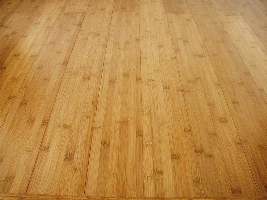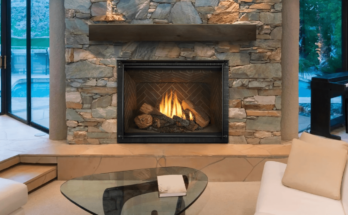Hardwood flooring has been the choice of flooring for households for ages now. It increases the value of a house tremendously due to its minimal wear and tear quality and easy installation. It is long lasting and once installed, need not be changed for as long as a century! In this era, where people are looking for making the world, environment friendly, a new concept of Green Building has originated. Bamboo as a material for flooring has been used to encourage this concept. It is an incredibly durable, versatile, sustainable and price-competitive form of hardwood flooring and is widely being used by people that are building or renovating their homes and those that have an eco-friendly bend.
Bamboo is a Renewable Source
Bamboo is considered a rapid renewable source of wood. When it is cut, the root of the bamboo stalk stays in the ground. This helps the grass to grow back to its natural self within a span of 3-7 years! This is a very short span when compared to Oak, which takes over 100 years to rebuild itself for harvesting. Bamboo has been emerging as an attractive option of flooring because of its resemblance with other forms of hardwoods. It is strong and durable, with a high resistance to insects and moisture.
Also Read : How To Create An Eco-Friendly Zen Garden
Manufacturing Process
- Original Bamboos
- Cut Open
- Fore plane
- Steam
- Drying
- Carbonize
- Fine Plane
- Select Lath
- Veneer and form semi-finished product
- Molding
- Paint
- Packing
Bamboo flooring planks are machined with tongue and groove edges to provide interlocking assembly. It is coated with UV cured Acrylic Polyurethane. Bamboo flooring is considered the toughest form of flooring due to its qualities such as abrasion resistance, non-flammability, smoke density, hardness, indentation resistance, chemical and stain resistance, dimensional stability, internal bond strength, slip resistance and compressive strength. Bamboo planks do not expand under high temperatures or high humidity conditions. This is why it is suitable to use bamboo flooring in all classes of buildings i.e. commercial as well as residential.
Facts of Moso Bamboo
Moso Bamboo is the primary species used for the manufacturing of flooring and plywood. It is the fastest growing woody plant on the planet. It takes Moso bamboo only 3-5 years to reach full maturity. Following are certain facts relating to the Moso breed of the bamboo grass:
- A critical element in the balance of oxygen and carbon dioxide in the atmosphere
- A viable replacement for wood
- An enduring natural resource
- Versatile with a short growth cycle
- A critical element of the economy
- An essential structural material in earthquake architecture
- A renewable source for agro forestry production
- A soil conservation tool
- An ancient medicine
- Integrally involved in culture and the arts
- A food source
- A landscape design element
Only the mature bamboo, which is above 5 years is used for raw material, to ensure the initial quality control, which is a very important step for the finished quality, as it will refer to the strength, tenacity, rigidity and tractability of the final bamboo flooring planks.
Pros and Cons of Bamboo Flooring
While bamboo seems to be a miracle flooring option, there are certain disadvantages that could hinder its popularity. Most of the bamboo used in flooring is produced in China where labor practices are questionable. Many overseas farms and factories in Asia have no guidelines for fair labor practices. It is possible that production of bamboo flooring produces toxic byproducts and expends large amounts of energy. Nevertheless, bamboo has a natural elegance to it. The distinct grains provide an attractive pattern, which is not only unique but can also complement any other décor in one’s house.
Eco-Friendly Product
Bamboo has been around for over 200 million years and has survived in the harshest of weather conditions. Bamboo flooring installation is done in the same way as a wood floor, either directly nailed or glued down. It has a natural resistance to moisture and mildew which makes it easy to use in any kind of environment. Bamboo has been termed as an eco-friendly product because it is a highly renewable source of material and not just a form of grass that is consumed by pandas!




